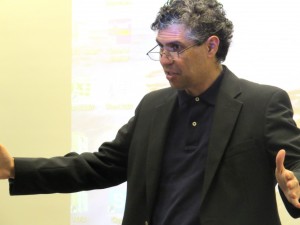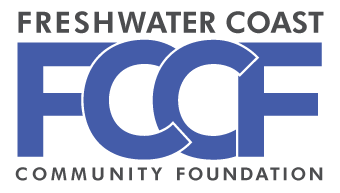FCCF Plans Robust Educational Offerings
The Freshwater Coast Community Foundation is planning specialized educational events to equip entrepreneurs in a variety of industries for success. Wilder Ferreira, an economist and Clemson Extension agent, is one of the instructors. The article below outlines some of what attendees can expect.
View the article as originally published here:
http://newsstand.clemson.edu/mediarelations/extension-connects-dots-to-successful-farm-management/
Extension connects dots to successful farm management
Scott Miller, Public Service Activities
January 13, 2015
CLEMSON — Theresa Milanesi’s Upstate cattle farm is entering its fourth year of operation, and the retired teacher has made just one sale and has few prospects for her next.
She needs a shooter to test her cows’ fertility and a trailer to transport them. She needs grass for cows to graze. She also needs a marketing plan after the sales deal that was the impetus of her business plan fell through.
“I don’t want to keep borrowing from my retirement,” said Milanesi, whose husband also is retired.
Her story is common in agriculture: a first-time farmer struggling to build a foundation while managing the unforeseen stresses of a new business.
Fortunately, Clemson University Cooperative Extension economist and educator Wilder Ferreira does house calls, or farm calls even. Milanesi met Ferreira this month at a “Financial Management for Producers” class Ferreira offers throughout the Upstate.
That meeting is leading to consultations with other Clemson Extension specialists to develop a grazing operation that can more economically feed her cows year-round, and a marketing plan to unlock new sales opportunities. Clemson Extension has a slate of programs to support new and emerging farmers.

Clemson Extension agent Wilder Ferreira teaches financial management for farmers.
Image Credit: Scott Miller
“These connections are so important,” Ferreira said.
The Financial Management for Producers course is certified by the U.S. Department of Agriculture and the Farm Service Agency, and is a requirement for FSA borrowers to complete biennially. The class is a valuable tool for all farmers, however, and Ferreira is offering the class Jan. 20 at the Anderson County Extension office and Feb. 10 at the Greenville County Extension office. Classes are 9 a.m. to 4 p.m. Ferreira said the course is also good for accountants who wish to better understand farming economics.
The one-day course covers agribusiness management, accounting terminology and standards, financial analysis, cash versus accrual accounting and other topics related to farm accounting, management and business planning. Ferreira shows examples of agribusinesses’ books to help analyze performance and spot trends.
“This training is two-fold,” Ferreira said. “It’s the class today, and it’s also the consulting I can do.”
Ferreira, who has launched and sold businesses in the past and has taught entrepreneurship at Clemson, will sit down with Milanesi and analyze her tax return line by line to help her build a viable business.
Ferreira said a common problem of struggling farmers is that owners draw too much salary.
“They don’t have the concept that they need to save money for growth. You have to keep growing your farm or your going to get smaller and smaller and smaller,” he said. “Usually they say, I started with 100 cattle but I had to sell.”
Another common program is operations are not efficient enough to produce a profit to service debt requirements. Struggling farmers fail to adequately analyze the return on investment from the purchase of new equipment like tractors.
“Sometimes assets don’t generate enough revenue to provide operations with enough capacity to turn a profit,” he said.
The S.C. General Assembly provided funding for the agribusiness education program to improve productivity and profitability of the state’s largest industry, which generates $34 billion and 200,000 jobs for the state economy.


